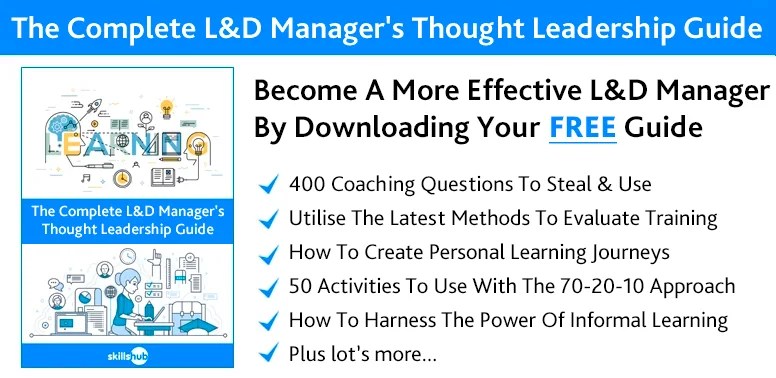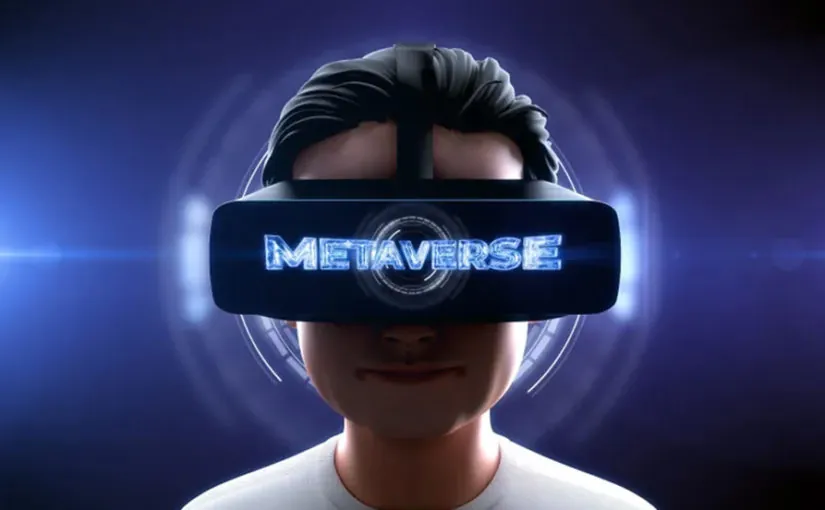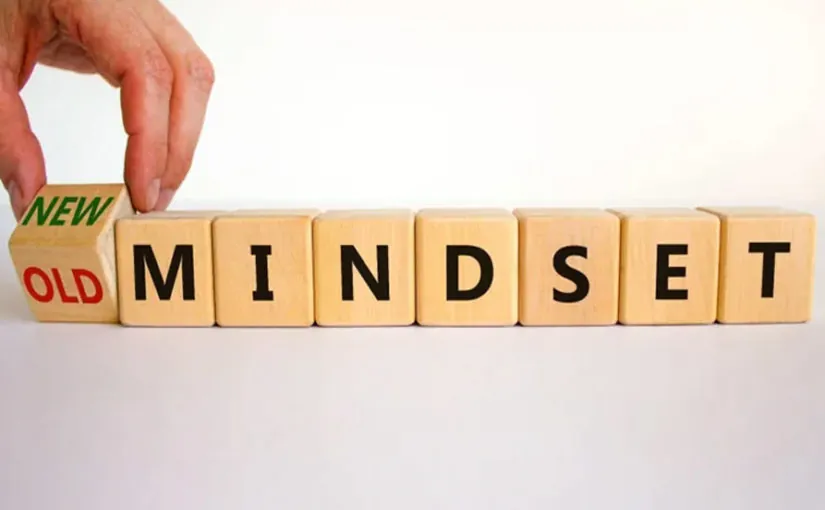The 70 20 10 learning model for learning and development was originated by Morgan McCall and his team of researchers from the Center for Creative Leadership (CCL).
By asking 200 or so executives how they believe they learned, they calculated that the most successful and effective managers learn lessons according to the following ratio:
- 70% of what they learn comes from challenging assignments
- 20% comes from developmental relationships
- 10% comes from coursework and training
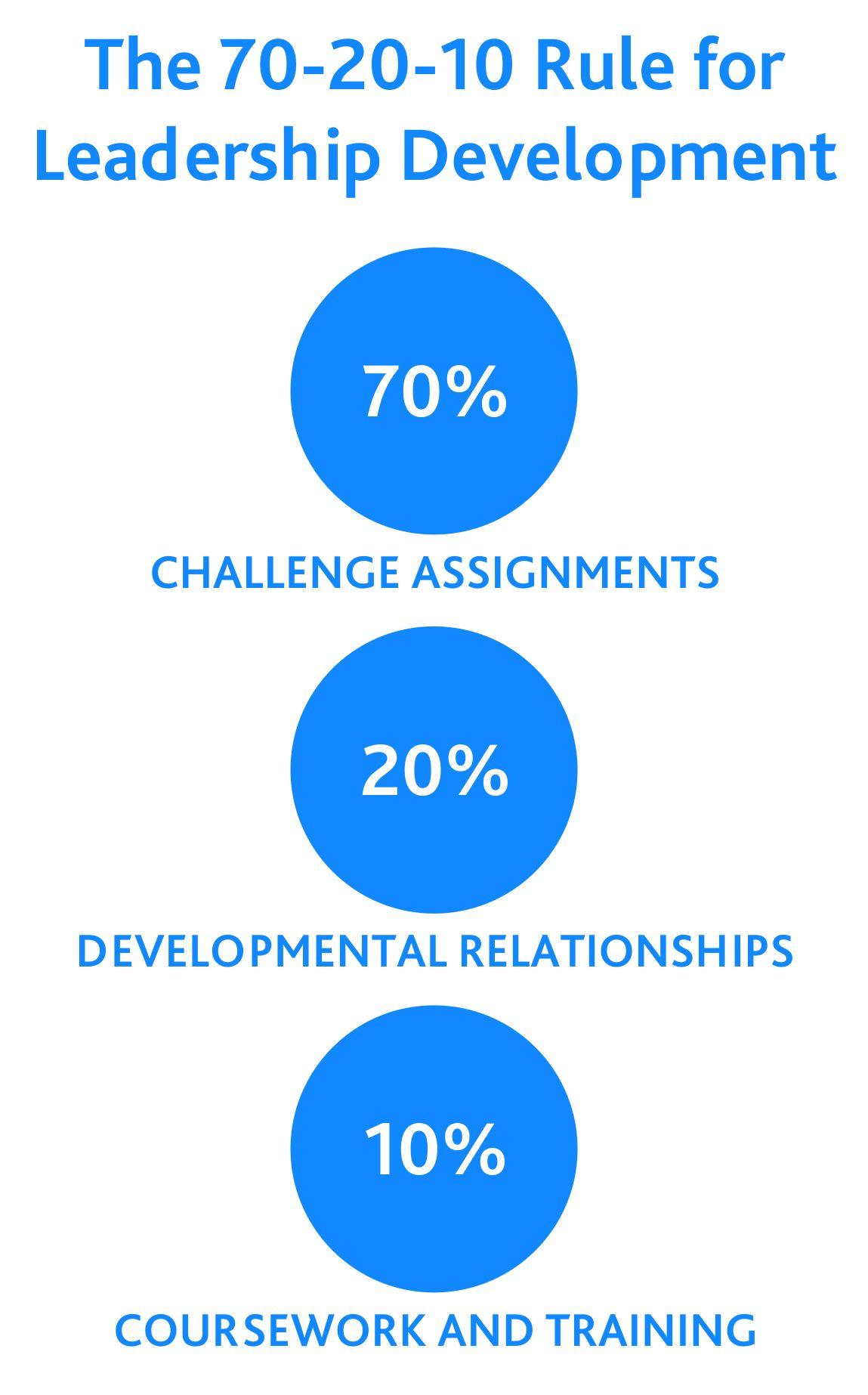 What made this research theory so compelling to the L&D community is that it confirmed what many practitioners had suspected in the work-place up until that point, which is that the lion’s share of corporate learning occurred on the job, not in the training room.
What made this research theory so compelling to the L&D community is that it confirmed what many practitioners had suspected in the work-place up until that point, which is that the lion’s share of corporate learning occurred on the job, not in the training room.
The 70 20 10 learning framework provided a platform upon which L&D professionals could build a holistic organisational L&D strategy that recognised and supported learning both within and more importantly outside the class-room.
The model has given L&D practitioners the confidence to actively invest in informal learning.
How does this 70 20 10 play out in practice?
In a 70 20 10 environment, it might make less sense to send a worker on a course for creative thinking and more sense to plunge them into a developmental real-world scenario that allows them to acquire these skills faster.
This can and is being done.
Today, we see that progressive 70 20 10-inspired L&D departments are actively developing informal learning policies which give managers the tools to leverage informal learning.
A great contemporary example of this is the NHS, one of the largest employers in England, who have the 70 20 10 firmly embedded in their L & D framework.
The NHS have developed a handbook for managers to help them choose the right developmental intervention for staff from a range of formal and informal interventions. Interventions are clearly marked as: Experiential, Relational or Formal (with some being labelled mixed), and most importantly, managers are reminded in the introduction to follow the 70 20 10 ratio.
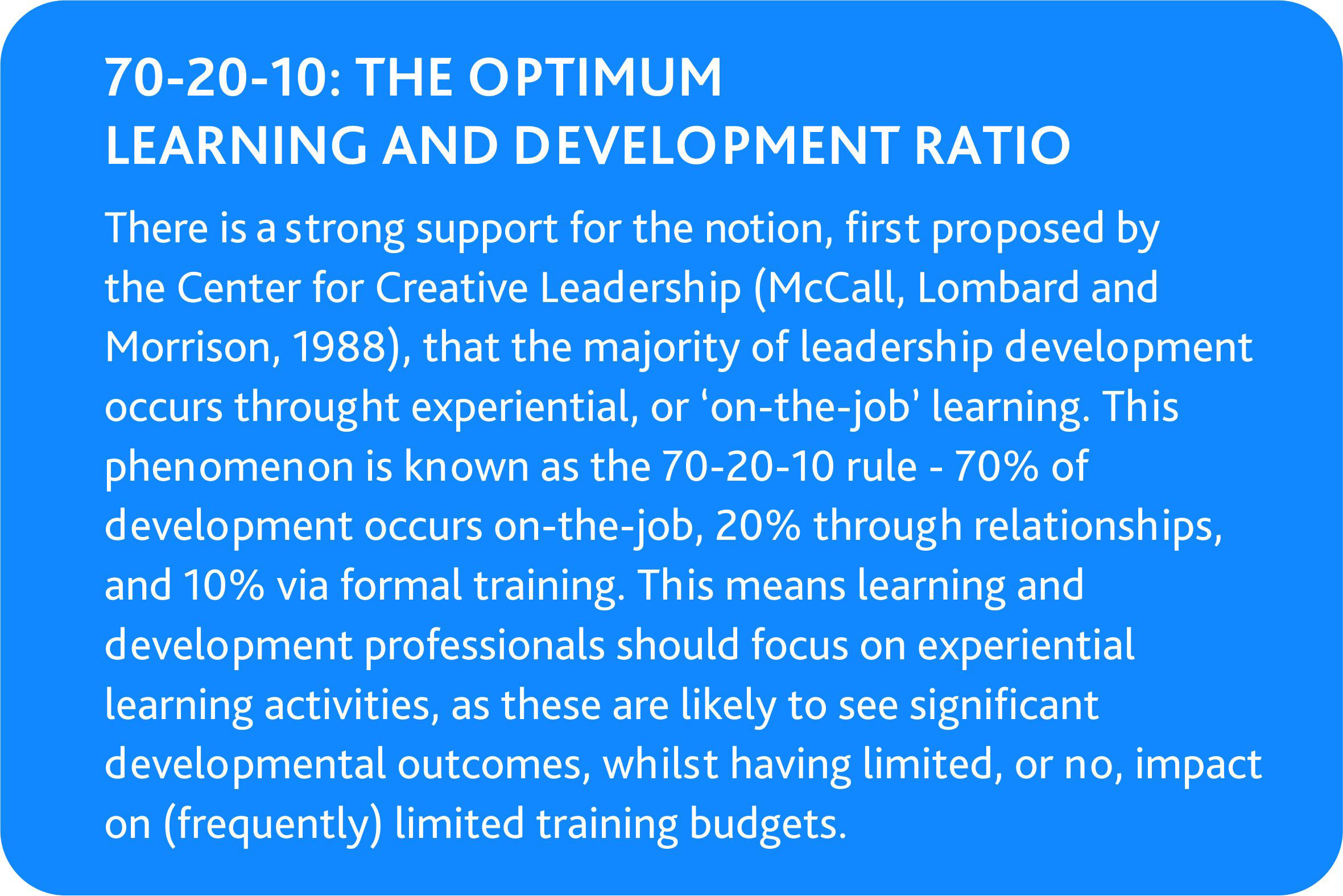
Under experiential learning you’ll find interventions like job rotation, 360 degree feedback, paired learning, conferences, seminars, webinars and ‘stretch assignments’, the latter of which has become one of the most popular incarnations of informal learning, and we are taking a moment to focus on this area.
A Close Look at Stretch Assignments
Lasting anything from a day to several months, typical NHS stretch assignments could be the: creation and launch of new services, major change in role/position, leading a team with considerable diversity, joining a senior board.
Good stretch assignments are not ‘sink or swim’ exercises, challenges are carefully managed to ensure there is not unacceptable risk and consequence.
In the NHS environment, experiential stretch assignments are viewed as being able to develop technical/functional expertise, AND intra personal and interpersonal skills.
Within the NHS development environment, perhaps only networking, another type of informal learning, offers such a broad learning scope.
These Stretch Assignments are about putting staff into situations that take them out of their comfort-zone beyond their current level of skill or experience.
This exposes them to new challenges and risks which require them to learn rapidly and deal with risks and uncertainty.
At the end of the process they should come out with greater confidence, competence and maturity.
The professional services sector is also well on board with the 70 20 10 model.
Deloitte, a global thought-leader in human resources practice, put 70 20 10 at the heart of their L&D model.
They prioritise on-the-job learning and one of the pivotal informal learning tools are their learning reflection worksheets.
To embed learning they encourage their workers to reflect on what they learned from significant projects.
The NHS also emphasised reflection as an important tool, and refer to research that even suggests that reflection is an essential part of deep and lasting learning.
It’s clear that public and private sector organisations are making use of the 70 20 10 model, but is there compelling evidence that it will work?
Yes, research shows that the 70 20 10 models does work and will lead to incremental improvements in all-round business performance.
In fact, the report, 70+20+10=100: The Evidence Behind the Numbers, shows that companies that are applying innovative models of such as 70 20 10 are:
4 X more likely to respond faster to business change (30% vs 7%)
3 X more likely to report improvements in staff motivation (27% vs 8%)
2 X more likely to report improvements in customer satisfaction scores (42 % vs 8%)
Now, there’s some pretty compelling evidence that 70 20 10 works.
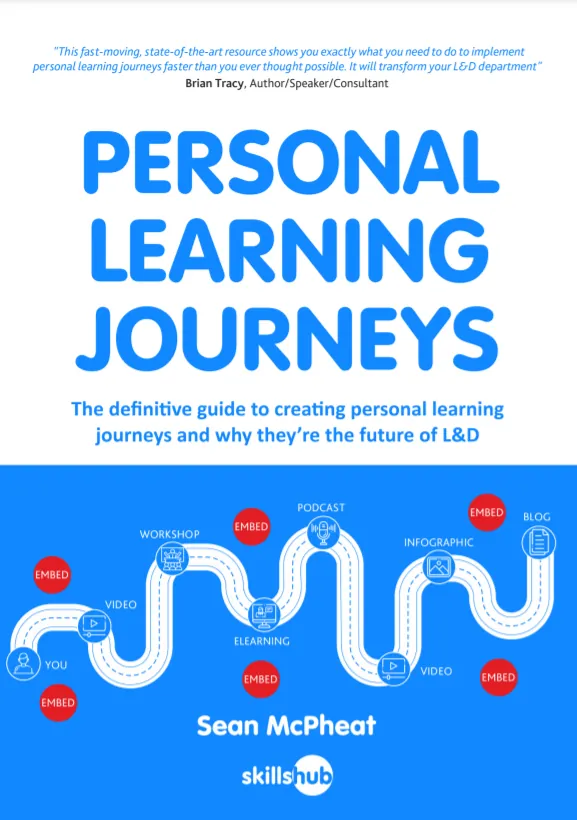
Learn How To Create Personal Learning Journeys For FREE!
70 20 10 isn’t anti-training
Even thought 70 20 10 is bias toward formal learning, it isn’t anti-formal training.
In fact the research report mentioned above revealed that organisations who are using 70 20 10 are not eliminating formal training.
They are simply redefining it, and encouraging staff to also learn through experience and relationship driven activity.
For example, companies successfully using 70 20 10 are 4 x times more likely to provide staff with job aids than those who are not.
They are also more likely to help staff to actively support learning and work together using social media tools to solve problems.
So, how could you apply the 70 20 10 model in your company or agency?
If you are going to implement, it’s clear that the most successful organisations are not eliminating formal training, they are adopting a balanced approach.
Take a look at the NHS L&D guide which is an excellent model for implementing 70 20 10 in your business, and which has some excellent pointers.
They take a holistic view to learning, offering their managers around 20 L & D interventions, including, experiential, relationship based and formal training options.
For each intervention, be it 70, 20 or 10, they offer a description, advice on when to use and tips and pitfalls, plus they outline possible combinations with other interventions.
There is certainly no antagonism between different approaches, it’s synergistic.
Also, they pitch 70 20 10 rather than force it on their managers.
It’s this more open and consultative approach to 70 20 10 that will yield the best results in a corporate implementation, securing greater buy-in and engagement from stakeholders throughout the organisation.
If you’re looking for an LMS that can support 70-20-10 then please check out our eLearning platform
Ready to level up your L&D strategy with the help of an eLearning company? Get in touch with us today!
It can create personal learning journeys and is ideal for this type of learning and development.



